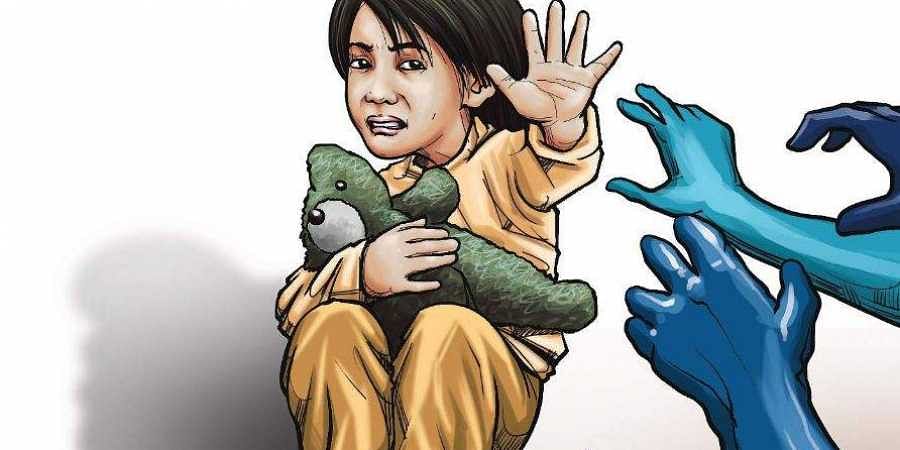Child abuse is an important topic that many people are not educated about. It’s important for you to recognize the signs of child abuse, so you can take action and help. There are three types of child abuse: physical, emotional, and sexual. This blog post will explain each type in detail as well as how they can be recognized. It also talks about what to do if someone recognizes a case of child abuse – it’s crucial for everyone to know how to deal with these situations.
Contents
What Is Child Abuse?
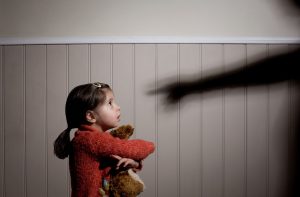 Child abuse is one of the most common forms of child maltreatment.
Child abuse is one of the most common forms of child maltreatment.
Child abuse can be a single violent incident or a series of repeated incidents over time. It also includes neglect, emotional abuse, and sexual abuse at home or in an institution like a school or residential care. Child Abuse is when someone hurts you on purpose with angry words/actions; hitting; kicking; pushing; slapping; shoving; shaking you, etc… This list might not seem very long but there are many ways that people hurt children every day without even knowing it! If something bad happens to your body (like cuts, bruises, one broken bone) then this counts as physical harm too because the injury must have happened by somebody else’s action – for example, if you fall off playground equipment onto concrete it could break your
The signs of child abuse can be difficult to spot, as some forms of abuse are not always physical. It’s important to know what to look for so that you can protect your child and get them the help they need.
Types of Child Abuse
There are many types of child abuse:
Physical Abuse
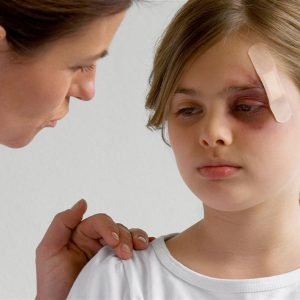 This type of abuse includes any intentional physical harm, such as hitting, punching, slapping, biting, and burning. It also includes shaking a child, throwing them against something, or restraining them in a way that causes physical harm. This also includes the failure to get medical treatment for a child’s injuries.
This type of abuse includes any intentional physical harm, such as hitting, punching, slapping, biting, and burning. It also includes shaking a child, throwing them against something, or restraining them in a way that causes physical harm. This also includes the failure to get medical treatment for a child’s injuries.
Physical Neglect
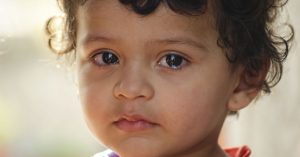 This type of abuse happens when someone doesn’t provide a child with adequate food, clothing, shelter, or healthcare. It also includes leaving children alone who are too young to care for themselves such as babies and toddlers. Some examples include: Not feeding your baby enough so they’re underweight or getting sick from lack of nutrition Leaving a toddler home by herself while you go out Leaning against something that can hurt your child (toy chests, electrical outlets) Giving her medicine without instructions on how much she should take in one day Allowing an adolescent to drink alcohol or use drugs Not making sure he’s warm enough during cold weather Not giving him appropriate clothes because he’s too young for them Not taking her to a doctor when she needs one
This type of abuse happens when someone doesn’t provide a child with adequate food, clothing, shelter, or healthcare. It also includes leaving children alone who are too young to care for themselves such as babies and toddlers. Some examples include: Not feeding your baby enough so they’re underweight or getting sick from lack of nutrition Leaving a toddler home by herself while you go out Leaning against something that can hurt your child (toy chests, electrical outlets) Giving her medicine without instructions on how much she should take in one day Allowing an adolescent to drink alcohol or use drugs Not making sure he’s warm enough during cold weather Not giving him appropriate clothes because he’s too young for them Not taking her to a doctor when she needs one
Physical neglect also includes failure to take reasonable steps to prevent an injury. This could include leaving your child alone in the car while you run into a store or it could mean not getting treatment for lead paint poisoning after finding out that there are peeling paint chips inside of your home.
Child Sexual Abuse
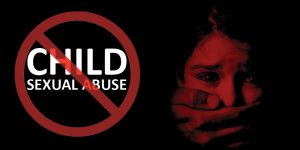 This is any sexual abuse or exploitation committed against a minor (someone under 18 years old). Someone who commits this form of abuse maybe someone outside of the family, such as a friend, neighbor, teacher/coach/religious leader; they may even be another child using physical force and coercion on another younger child. It can also happen within families through incest. Types of child sexual abuse include: Touching a child in a way that makes them feel uncomfortable or scared; making a child touch someone else sexually; showing pornography to a child; making verbal comments about a child’s body or sexual activities.
This is any sexual abuse or exploitation committed against a minor (someone under 18 years old). Someone who commits this form of abuse maybe someone outside of the family, such as a friend, neighbor, teacher/coach/religious leader; they may even be another child using physical force and coercion on another younger child. It can also happen within families through incest. Types of child sexual abuse include: Touching a child in a way that makes them feel uncomfortable or scared; making a child touch someone else sexually; showing pornography to a child; making verbal comments about a child’s body or sexual activities.
Emotional Abuse
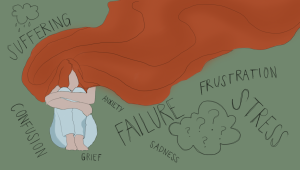 This type of abuse can be the most difficult to identify because there is no physical evidence. It includes any act or words that cause emotional harm, such as yelling, shaming, name-calling, and isolating a child from friends and family. Emotional abuse can also involve exposing children to violence or traumatic events. This can include witnessing domestic violence, experiencing a natural disaster with the family, or seeing other terrifying events.
This type of abuse can be the most difficult to identify because there is no physical evidence. It includes any act or words that cause emotional harm, such as yelling, shaming, name-calling, and isolating a child from friends and family. Emotional abuse can also involve exposing children to violence or traumatic events. This can include witnessing domestic violence, experiencing a natural disaster with the family, or seeing other terrifying events.
Children who are emotionally abused may have trouble in school and they can suffer from depression and anxiety as well as low self-esteem. They might seem overly aggressive, withdrawn, or fearful compared to their peers.
Psychological Abuse
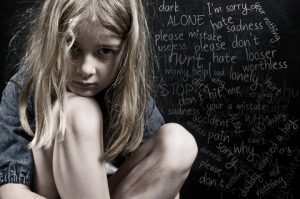 This type of abuse can happen when someone repeatedly says or does things that make a child feel powerless, worthless, and unloved. Examples include telling them they are crazy/stupid/ugly; threatening to harm themselves if the child doesn’t do what he wants; humiliating him in front of others by calling attention to his flaws or mistakes; controlling every aspect of their lives (what clothes she wears, who her friends are).
This type of abuse can happen when someone repeatedly says or does things that make a child feel powerless, worthless, and unloved. Examples include telling them they are crazy/stupid/ugly; threatening to harm themselves if the child doesn’t do what he wants; humiliating him in front of others by calling attention to his flaws or mistakes; controlling every aspect of their lives (what clothes she wears, who her friends are).
Psychological neglect is another form of psychological abuse where parents don’t pay enough attention to the emotional needs of their children because they’re focused on alcohol or drug use. This often happens with babies and toddlers whose caregivers have substance abuse problems. In these cases, it’s called “Munchausen syndrome by proxy.”
Financial Abuse
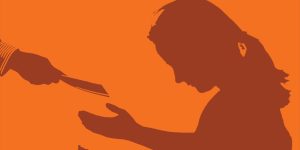 This type of abuse can happen when parents neglect to provide their children with financial support, forcing them into activities such as stealing and prostitution. Another form of financial abuse is failing to pay for needed medical care or withholding money that the child needs for daily living expenses like food and clothing. They also avoid giving the child an allowance or any money for special occasions, like birthdays and Christmas.
This type of abuse can happen when parents neglect to provide their children with financial support, forcing them into activities such as stealing and prostitution. Another form of financial abuse is failing to pay for needed medical care or withholding money that the child needs for daily living expenses like food and clothing. They also avoid giving the child an allowance or any money for special occasions, like birthdays and Christmas.
Financial neglect can also include not having enough money to provide a safe home environment, which could lead to things like moldy walls, pests, and broken windows.
Signs of Child Abuse
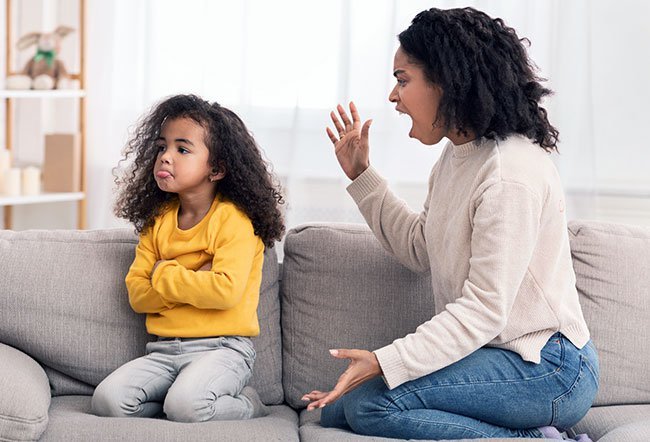
There can be many signs of child abuse, but some behaviors may be more concerning than others. If you see any of these signs in a child, it’s important to reach out and get help:
Injuries On Body
These may include burns, bruises, or cuts on the face and neck, arms, and legs. Some children miss a lot of school due to unexplained injuries that may be evidence of abuse at home.
Behaviour Changes
A child who is being abused may start to act out aggressively, become withdrawn, or seem fearful. They might also have problems sleeping or eating, and lose interest in activities they used to enjoy.
Trouble at School
If a child is always tired, has trouble concentrating, or frequently misses school it could be because of the abuse happening at home.
Sudden Changes in Guardianship
If a child suddenly goes from living with both parents to only one parent, this could be a sign that something is wrong. If the other parent is no longer in the picture and you don’t know why it’s important to ask questions and get help.
Revealing Knowledge Beyond His Age
Some children who are being abused will know things that they shouldn’t know. For example, a young child might have an understanding of sexual acts or the names and ages of siblings who are not living in his home. This can happen if they’re exposed to sexual abuse by someone else or forced to watch people engaging in sexual activity against their will.
Social Anxiety
If a child is being abused, he may start to avoid social situations and have trouble making friends. This can be because the child feels ashamed or embarrassed about what’s happening at home.
Common Causes of Child Abuse
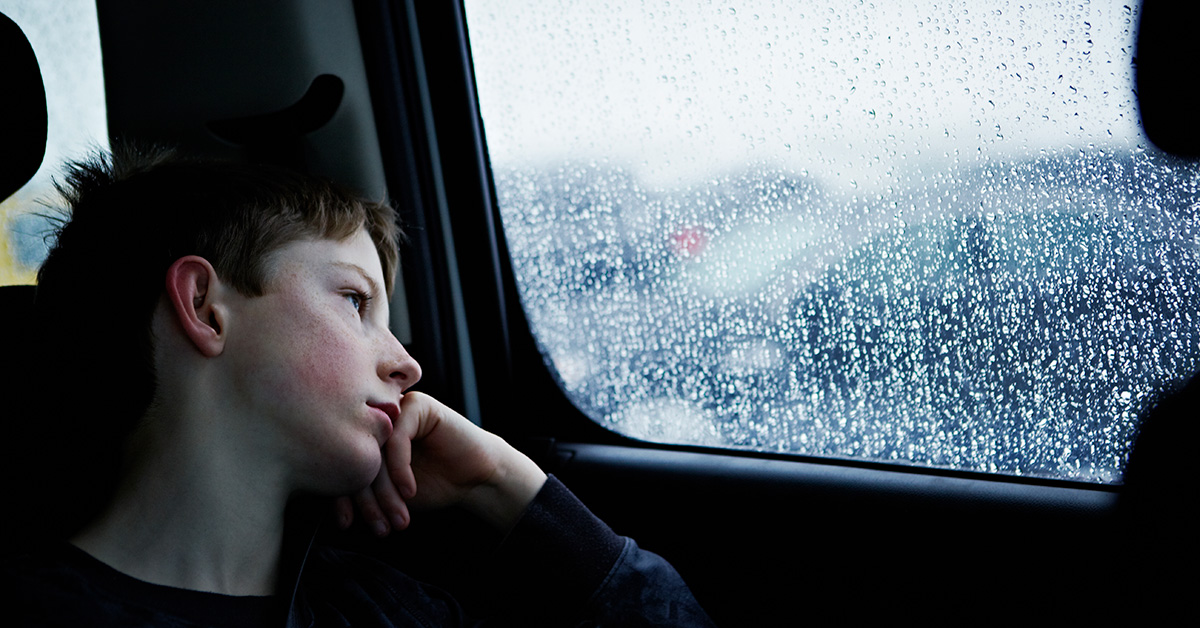
There can be many reasons for child abuse:
Substance Abuse
This can be one of the major reasons for child abuse. Many parents who are addicted to drugs or alcohol use their children as pawns in an effort to gain attention and care from others.
While some people might spend a lot of time with the child while they’re using, the caregivers will be abusive when they don’t have access to those substances. Even if there aren’t any substance issues involved, drug addicts may feel that it’s OK for them to hurt their own kids because nobody else cares about them either way.
Domestic Violence
This can be a major factor in child abuse. When there’s a history of domestic violence in the home, it’s very likely that the children will be abused as well.
In fact, three-quarters of children who are killed by their parents are killed as a result of domestic violence.
Depression and Mental Illness
When one or both parents are dealing with mental health issues like depression, they may take out their anger and frustration on their children. This can lead to physical, emotional, or sexual abuse.
Poverty
Children who live in poverty are more likely to be abused than those who don’t. This is often due to the stress that comes with being poor and not having enough money to provide for your family. Sometimes people who are in poverty decide that it’s easier to abuse their children than work hard and try to provide for them.
Psychopaths
People who have psychopathic traits can be dangerous toward others, including kids. They may take pleasure from harming other people or animals, which could lead them to hurt a child out of boredom, anger, or frustration. Some abusers might even enjoy hurting the children they’re caring for because they don’t feel empathy and remorse like normal people do when doing something wrong.
Technology Use
This is another unexpected cause of child abuse – some parents use technology as an outlet for anger without realizing what they’re doing is abusive towards the child on the receiving end! Overuse of cell phones has been linked with increased aggression and violence in children, so it’s important to set limits on technology use and have regular conversations about appropriate online behavior.
Stress
It can also be hard to be a parent. Sometimes, parents may feel stressed out and overwhelmed which could lead to them taking their anger out on their children. This is often referred to as “burnout.”
Negative Effects of Child Abuse on Children
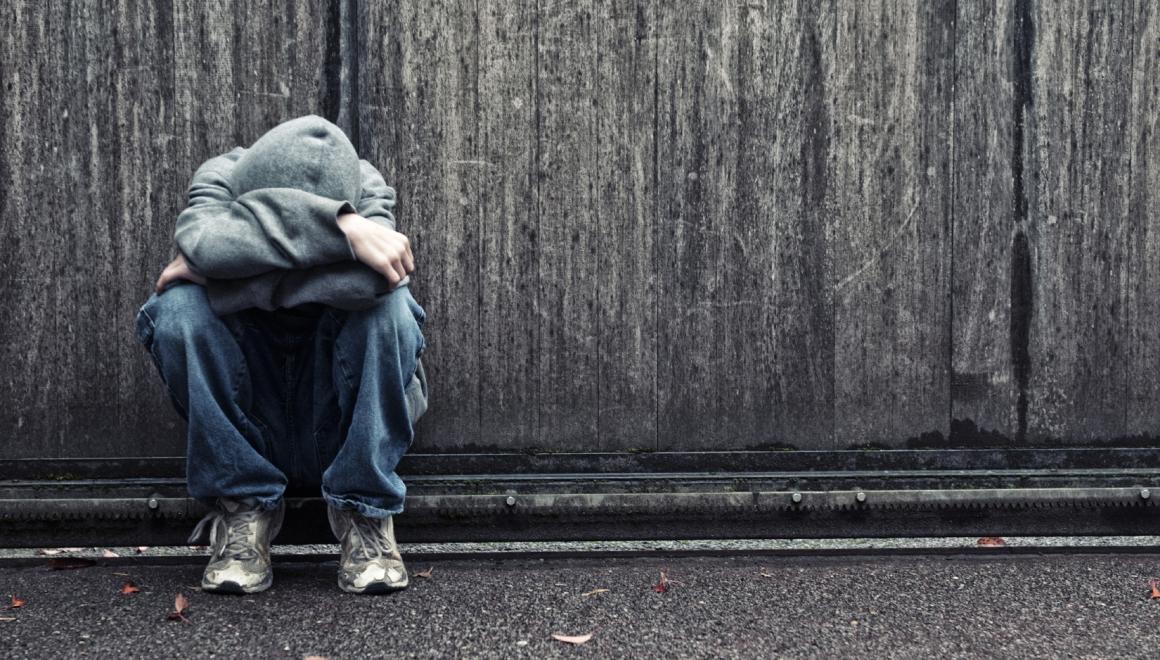
There are many effects of child abuse on children, both in the short- and long term. Some of these include:
Anger
Children who are abused may start to feel a lot of anger – at the abuser, themselves, or others around them. This can be difficult to handle and often leads to problems in relationships down the road.
Depression and Anxiety
Many abused children suffer from depression and anxiety as a result of what’s happening to them. They may feel like they’re not good enough, that it’s their fault, or that something is wrong with them. These feelings can last into adulthood if they aren’t addressed properly. Low self-esteem is very common among adults who have been abused as children.
Drug Abuse
A high percentage of adults who were abused as children end up abusing drugs or alcohol themselves. This is often an attempt to self-medicate and deal with the pain that’s been caused by the abuse.
Eating Disorders
Some children who are abused develop eating disorders as a way to cope with what’s happening to them. They may feel like they’re not good enough or that their body is wrong, which can lead to dangerous behaviors like bingeing and purging.
Violence
Many abused children grow up to be violent adults. They may lash out at others in response to the pain that they’ve experienced, or because it feels familiar and comfortable. This pattern of violence can be very damaging for both the abuser and their victims.
Sexual Problems
Some abused children have difficulty with sexual relationships as adults. They may feel like they’re not worthy of love or touch, or that sex is dirty or dangerous. This can cause a lot of distress and problems in their personal lives.
Suicide
Sadly, some abused children choose to end their lives rather than face the pain any longer. Suicide is one of the leading causes of death for child abuse victims. This also happens to adults who have been abused, which is why it’s important for anyone dealing with abuse to get help as soon as possible.
How To Overcome From Child Abuse?
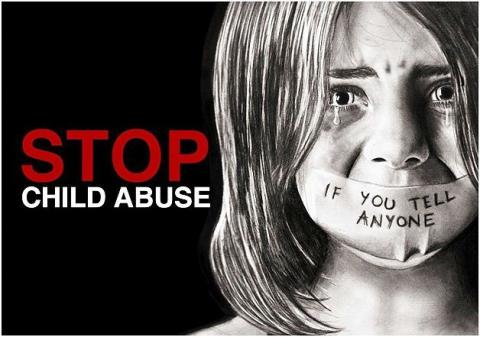
There are many ways to overcome child abuse:
Seek Professional Help
This is the best option for anyone who has been abused and needs support in dealing with the trauma. There are many therapists who specialize in helping people heal from child abuse.
Join Support Group
There are groups available for both adults and children who have experienced abuse. These can be helpful in sharing your experiences with others who understand what you’re going through and getting advice on how to cope.
Talk To Someone You Trust
If you don’t feel comfortable talking to professionals or other group members, talk to a friend or family member about what’s going on. It can be helpful to have someone to vent to and help you stay accountable.
Get Involved In Activism Work
You can help prevent child abuse by educating others about the problem and coming together to help children who have been abused. You can also support organizations that work with victims of child abuse, such as Childhelp or Darkness To Light.
Try To Put The Abuse Behind You
This is easier said than done, but it’s important to remember that you are not your abuser. They may have hurt or damaged you in the past, but they do not define who you are as a person. Every day can be an opportunity for growth and improvement – don’t let what happened in the past keep holding you back.
Conclusion
In conclusion, child abuse can have a devastating impact on victims’ lives. It’s important to get help if you’re dealing with the effects of child abuse, whether it’s from professionals or loved ones. There are many ways to overcome child abuse, and with time and effort, you can start to heal the pain that’s been caused. It is also important to remember that you are not your abuser, and you can move on from the abuse to live a happy and fulfilling life.
If you have been abused and need support, please reach out for help. There are many resources available, including professionals who specialize in helping people heal from child abuse. You are not alone, and there is hope for healing. Thank you for reading this post.
A Word From Therapy Mantra
Your mental health — Your psychological, emotional, and social well-being — has an impact on every aspect of your life. Positive mental health essentially allows you to effectively deal with life’s everyday challenges.
At TherapyMantra, we have a team of therapists who provide affordable online therapy to assist you with issues such as depression, anxiety, stress, workplace Issues, addiction, relationship, OCD, LGBTQ, and PTSD. You can book a free therapy or download our free Android or iOS app.
